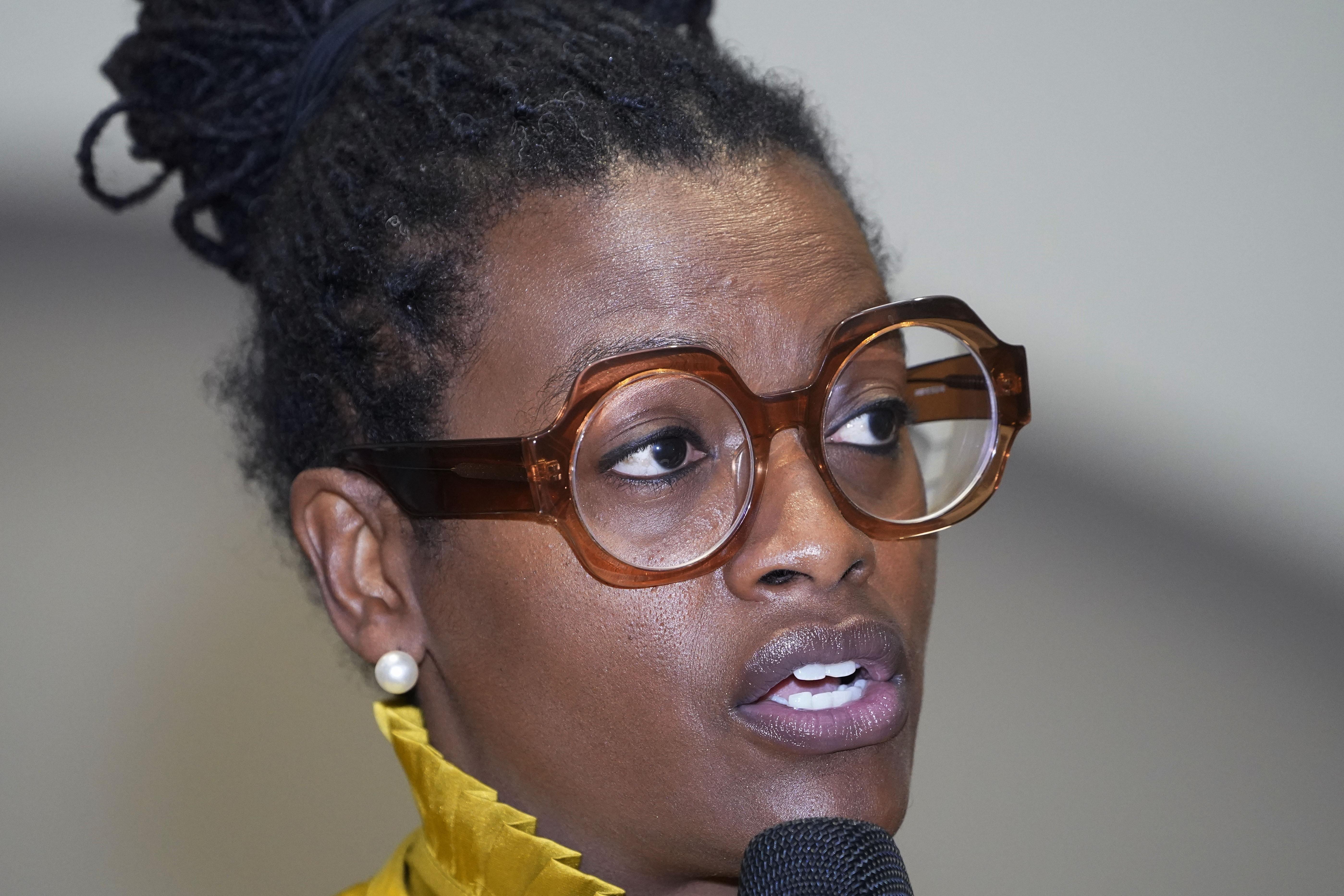Nearly a decade later, McMillan says she struggled to get promoted within the company. She says supervisors told her she wouldn’t be able to continue being a good mother within the sales positions she wanted and that sales was too dangerous for her.
“I was also told that people wouldn't want to do business with a woman,” McMillan said. “So every time that I asked, I was told for some reason or another that I wasn't qualified for this job. I tried to come back with responses such as, what if I got certified in carrying a handgun? What if I took a self-defense class and made the job safer for myself?”
She says none of these arguments worked. McMillan was instead appointed to the company’s account payables department.
“I also was able to discover that there were other men in the company that were doing almost the exact same job as I was but were getting paid probably $10,000 to $20,000 more a year,” she said.
McMillan filed a complaint with the U.S. Equal Employment Opportunity Commission. After four years, she received $125 thousand in a settlement.
Women on average earn 83 cents for every dollar earned by white men. However, McMillan realized because of her former employer that another group of women was in a particularly dire position.
“They never once hired a black female,” she said. “Their excuse was they would be a distraction to their male workers. But they would hire them to come to their homes and clean or take care of their children.They were beloved in that regard, but always separate.”
Even when they are hired, research suggests that Black women face a much harder time securing equitable pay. According to the Institute for Women’s Policy Research, Black women in America only make 64 cents for every dollar made by White men in similar positions.
Cassandra Welchlin is the executive director of the Mississippi Black Women’s Roundtable.
“That means we're losing a significant amount of wages,” she said. “A lot of that is rooted in racial and gender biases. That's for all women, but particularly black women.”
Welchlin says Black Women in Mississippi typically make 53 cents for every dollar made by non-Hispanic, White men.
“That is what I call wage theft,” she said. “For black women, we're talking about women losing wages at a very high rate.”
Black women, who work in all industries across Mississippi, are many times heads of households. Welchlin says job gaps on resumes and salary histories are often used to justify offering Black women lower salaries.
“Mississippi was one of the last states to push an equal-pay law, but the law is not equal at all,” she said. “I call it the Mississippi Unequal Pay Law. It basically rubber stamps an employer's decision to pay women less for equal work. It leaves black women out because it's not based on race but just gender.”
She says on average, Black women would need to work an additional seven months to account for the wage gap.
McMillan, the equal pay activist, says the disparity makes her livid.
“That it takes an African-American woman to work almost 19 months to make the same as what another person makes in a year is egregious,” she said “It's not a myth, it's math.”
According to the Institute for Women’s Policy Research, Black women may lose up to $1 million throughout a 40-year career due to unequal pay.




